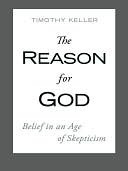More on this book
Community
Kindle Notes & Highlights
Read between
September 24, 2018 - December 16, 2019
therefore all we need to do is denounce and mock the opposing view.
faith, which (Christians believe) only God can give.
they deserve our prayers and our friendship.
to base one’s view of the world on a combination of reason and faith, just like religious people do.
First,
we must stop expecting the rest of the world to simply
bow its knee to our particular set of fai...
This highlight has been truncated due to consecutive passage length restrictions.
we should try to help the other side see the reasons for our faith,
I do not think he is merely a religious figure but rather a living power,
My teacher for the first year
In the second year
In the first year, we stood before a holy, just God whose wrath could only be turned aside at great effort and cost. In the second year, we heard of a spirit of love in the universe, who mainly required that we work for human rights and the liberation of the oppressed.
“If
morality is relative, why isn’t social justice as well?”
this spiritual “unreality” stemmed from three barriers
intellectual one.
interior, personal one.
third barrier was a social one.
This leads to a strange conclusion.
We have neither the Western Christendom of the past nor the secular, religionless society that was predicted for the future.
We don’t reason with the other side; we only denounce.
each side should accept that both religious belief and skepticism are on the rise.
If we stopped saying such things to ourselves it might make everyone more civil and generous toward opposing views.
Christians should reflect on the fact that such large sectors of our formerly largely Christian societies have turned their backs on faith. Surely that should lead to self-examination.
years. I recommend that each side look at doubt in a radically new way.
Believers should acknowledge and wrestle with doubts—not
“There can’t be just one true religion,” you must recognize that this statement is itself an act of faith.
No one can prove it empirically, and it is not a universal truth that everyone accepts.
The reason you doubt Christianity’s Belief A is because you hold unprovable Belief B. Every doubt, therefore, is based on a leap of faith.
But hidden beneath this feeling is the very modern American belief that the existence of God is a matter of indifference unless it intersects with my emotional needs.
10
Believers and nonbelievers will rise to the level of disagreement rather than simply denouncing one another.
She saw a counselor at the church who helped her draw a connection between the mercy of God and her seemingly inexhaustible need for acceptance.
he became somewhat jealous of his Christian friends’ joy and hope for the future that he had not encountered before.
soon he realized that
his dominant life narrative had been the escape and total avoidance of suffering.
Now he saw how futile such a li...
This highlight has been truncated due to consecutive passage length restrictions.
“As an atheist I thought I lived a moral, community-oriented, concerned-with-social-justice kind of life, but Christianity had an even higher standard—down to our thoughts and the state of our hearts.
I realized that my achievements were ultimately unsatisfying, the approval of man is fleeting, that a carpe diem life lived solely for adventure is just a form of narcissism and idolatry.
When Jesus confronted “doubting Thomas” he challenged him not to acquiesce in doubt (“believe!”) and yet responded to his request for more evidence.
“It’s arrogant to say your religion is superior and try to convert everyone else to it.
your biggest problem with Christianity?
exclusivity.
Religion, generally speaking, tends to create a slippery slope in the heart.
Each religion informs its followers that they have “the truth,” and this naturally leads them to feel superior to those with differing beliefs.
Also, a religion tells its followers that they are saved and connected to God by devote...
This highlight has been truncated due to consecutive passage length restrictions.
This moves them to separate from those who are less devoted and pure in life. Therefore, it is easy for one religious group to stereotype and caricature other ones. Once this situation exists it can easily spiral down into the marginalization of oth...
This highlight has been truncated due to consecutive passage length restrictions.
There are three approaches that civic and cultural leaders around the world are using to address the divisiveness of religion.
Because of the vitality of religious faith in the world, efforts to suppress or control it often serve only to make it stronger.
cannot ultimately succeed, however, because at its heart is a fatal inconsistency, even perhaps a hypocrisy, that will eventually lead to the collapse of this way of thinking.


